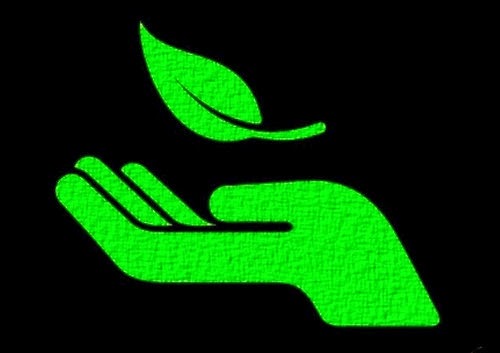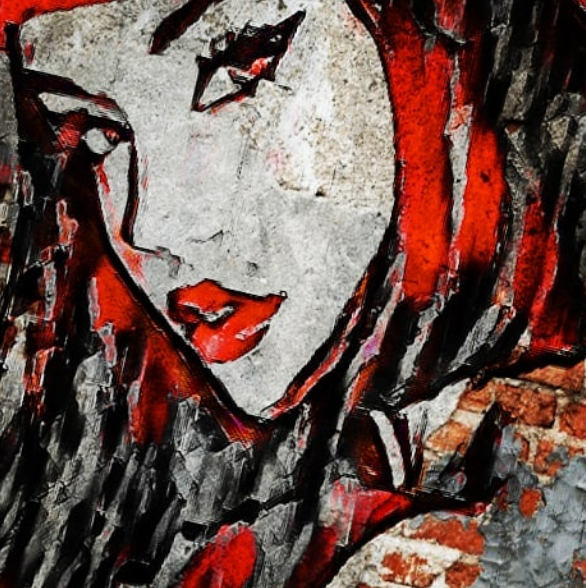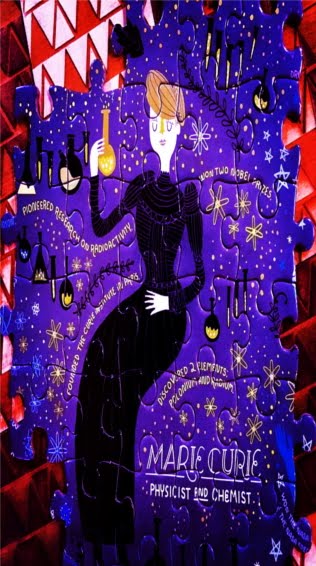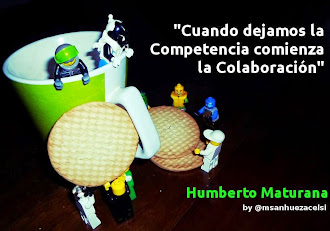The League Of Extraordinary Women
Leadership & Innovation
Meet The League Of Extraordinary Women: 60 Influencers Who Are Changing The World

The previously untold story of how an unprecedented network of high-achieving women from the world's largest companies, innovative startups, philanthropic organizations, government, and the arts combined forces to change the lives of girls and women everywhere.
Every change agent needs an agency. We've chosen 60 notable members of the League of Extraordinary Women and the organizations, both for-profit and not-for-profit, that are their vehicle to tackle areas of dire need, such as developing the next generation of female entrepreneurs.
Every change agent needs an agency. We've chosen 60 notable members of the League of Extraordinary Women and the organizations, both for-profit and not-for-profit, that are their vehicle to tackle areas of dire need, such as developing the next generation of female entrepreneurs.
From left:
LEILA JANAH
CEO, Samasource
With support from Facebook COO Sheryl Sandberg and Secretary of State Hillary Clinton, Janah matches workers in Pakistan, India, and Haiti with such companies as LinkedIn and Google.
PAT MITCHELL
CEO, The Paley Center for Media
At CNN and other outlets, Mitchell covered women's issues as a journalist; she is now a key connector of high-profile activists from Eve Ensler and Glenn Close to Donna Karan and Jennifer Buffett.
TORY BURCH
Founder, Tory Burch Foundation
The fashion CEO has partnered with Dina Powell at the Goldman Sachs Foundation and Gina Harman at Accion to bring microloans to women entrepreneurs in the U.S.
Act One
IGNITION
They needed the cows.
Maria Eitel, CEO of the Nike Foundation, is starting her tale at the beginning of her eight-year journey to save the world's girls. She is telling me about one 13-year-old in particular, the very one who inspired her to invent the Girl Effect, a global initiative that in less than a decade has created or supported groundbreaking programming and research that has put the often-terrifying needs of indigent girls in the toughest parts of the world on the global agenda. "I was in this ridiculously poor part of Ethiopia," says Eitel, whose title at the time was vice president of corporate responsibility at Nike. The founder and CEO, Phil Knight (along with future CEO Mark Parker), had tapped her to create a not-for-profit arm--but had not dictated a mission. Eitel was in the midst of a yearlong exploration to determine how to make the biggest impact.
In Ethiopia, she followed this girl, named Kidan, through her entire day, watching her strap a filthy jerrycan to her back and haul water, then grind grain as she sat in the dirt. "She was amazingly smart," recalls Eitel, who likes to talk about creating "that moment of inspiration when you know that a girl believes in herself." She calls it "ignition," and Kidan had it--she wanted to be a doctor. "She was such a bright light," says Eitel. "But we learned that it's not enough."
When Eitel spoke to Kidan's mother about her dreams for her daughter, she found out that the child had already been committed to be married, in exchange for cattle. The mother did not share Eitel's dismay. "Once I was a girl," she told Eitel. "One day, there was this commotion and they picked me up and put me on a donkey and that was my wedding. I never saw my family again. So Kidan will just have to be strong." Kidan's hope for a career--for anything like the self-directed life that Eitel, and probably any reader of this magazine, believes to be a human right--was effectively over, just as her mother's had been not so long ago. And her survival? Well, her marriage commitment placed that in greater doubt: In sub-Saharan Africa, says Eitel, more than 90% of deaths related to pregnancy are among adolescents.They needed the cows.
This experience, as well as hundreds of conversations with economists, villagers, NGO leaders, and industry titans, led Eitel to pitch the Nike board on her concept: The mission of the Nike Foundation should be to arrest intergenerational poverty by focusing on girls, with a particular emphasis on ending child marriage. She remembers the gremlin that whispered in her ear as she nervously waited outside the 2004 meeting where she was to make her case:"Hey, Nike! Let's invest in adolescent girls and poverty! And not in any country where we have factories or businesses! Let's go to places like Ethiopia and northern Nigeria, where no one else dares go!" After a perilous few moments of silence, Knight gave her the thumbs-up, the flick that ignited an essential part of a movement.
Eitel, 50, is a charter member of what we're calling the League of Extraordinary Women. This interconnected group of executives, philanthropists, entrepreneurs, artists, government officials, and academics is formulating groundbreaking initiatives and hacking long-outdated aid models by tapping new thinking and a growing data set that suggests that investing in girls and women will create measurable economic benefits for all. Multiple studies over the past decade indicate that the facts are unquestionably on their side: If you train a woman in a particular skill and give her a microloan, or a way to build up some savings, she is more likely than a man to use her income to educate and care for her family and invest in the community. In rural Africa and India, one year of secondary schooling can raise a girl's future wages by 10% to 20%. In Kenya alone, the cost of early pregnancies and limited schooling of girls is an estimated $3.4 billion in gross income--equivalent to that country's entire construction sector.
The League is trying to address a brutal reality. To cite just one example, the United Nations estimates that 1 billion women will be raped and sexually brutalized this year, often as a consequence of war. That's a shocking statistic--and perhaps equally shocking is the fact that the moral case for intervening to stop such action is not effective. "It never has been," says Melanne Verveer, the former chief of staff to Secretary of State Hillary Clinton who is the UN's first-ever global ambassador for women. "The only thing that will work now is the strategic case. And we are working to make it in spades." So instead of horrifying donors, CEOs, and world leaders, the women of the League draw the clear line from a girl's health and well-being to the financial health of her country--and thus the world's. A microloan, or additional education, lets a young woman who was headed for a life of hardship get or invent a paying job. Instead of being forced into early marriage in exchange for the supposed economic security of her family--a fancy term for "traded for cash or cows," as Kidan and 10 million other girls are each year--her job can help support the family; empowered by work, "she's more likely to seek health care, avoid HIV infection, and delay pregnancy," Eitel says, thus reducing her country's health-care burden. In such countries as Bangladesh and India, studies draw a bright line from a literate, educated girl to the spread of democracy. Eitel summarizes, "Girls grow into women who are more likely to go to political meetings and organize on behalf of their community." And advocate for themselves. As they are allowed to grow, they become workers who can help a country sustain itself--and thereby become a country that relies less on help from others.
On paper, it's a simple, direct line. But the "members" of the League know that helping girls and women is never a straightforward affair. In my months of reporting this story, I was struck again and again by the empathic capacity of these well-off Western women to correlate their personal and career struggles with the dire woes of girls in far-off lands. Their urgency, their emphasis on making the strategic case, and their sense that the battle is never really over come directly from their own experiences. Pat Mitchell, CEO of the Paley Center for Media, is a 69-year-old award-winning journalist, inveterate connector, mentor, and longtime antiviolence advocate on behalf of girls and women. She fought the good ol' boy network as a young reporter, and she fights equally shortsighted thinking now. "How can we expect to be effective in the world," she asks, "when we are under siege here?" Like many in the League, she sees domestic issues such as the battle over health-insurance coverage for contraception, or the continuing failure to include women in corporate boardrooms, as examples of prejudice that privileged women continue to confront. Her tactic for facing down corporate prejudice is the same as Eitel's for facing down international prejudice: Make the strategic case. Mitchell tells me about research from Catalyst, a not-for-profit group devoted to creating business opportunities for women, which shows that women have just 16% of board seats in large American corporations--but that firms which include women on their boards have operating profit margins that are 84% better than their counterparts without women.
"WE HAVE TO PLANT SEEDS FOR THE NEW ECONOMY," SAYS JENNIFER BUFFETT OF THE NOVO FOUNDATION. "HILLARY CLINTON UNDERSTANDS THAT THE WOMAN OR GIRL IN POVERTY ISN'T SO FAR AWAY ANYMORE--AND IS AN UNDERVALUED ASSET."
Mitchell believes that the League is the embodiment of a new, global women's movement. It's distinct from the first wave ("started by old broads like me, Hillary, and Gloria [Steinem]," says Mitchell) primarily because it's intergenerational and highly collaborative, focused on specific issues with specific solutions. And it's powerful in a way that men can understand. In the past few years, women like Eitel and Mitchell have pushed their agenda for the improvement of the lives of girls and women to the center of the world's biggest stages. The turning points: In 2009, the World Economic Forum, in Davos, Switzerland, featured a first-of-its-kind plenary session on the Girl Effect; and at the Clinton Global Initiative in New York later that year, there was a special track focused on the empowerment of girls and women, and it's remained on the agenda ever since.
Corporations are paying attention as well. In the past five years, the list of companies that have made girls' and women's issues a special priority reads like a Who's Who of American business: Besides Nike, Facebook, Coca-Cola, Avon, ExxonMobil, Goldman Sachs, HP, Bank of America, Dell, Google, LinkedIn, and more have all found a relevant way to wade in. And they've all joined the fight for one simple reason: Investing in girls and women pays off.
Act Two
SMART POWER
"I'd be lost without Hillary."
It's late April in Washington, D.C., at the Global Impact Economy Forum, a two-day State Department confab focused on steering private and public investment toward enterprises that address systemic economic woes across the globe. It's not a conference on women and girls, but you'd be forgiven for thinking it is--the place is filled with League members who have found fertile ground for their insights and ideas. It makes sense: If the League has a founding member, guiding inspiration, and essential catalyst, it is the event's host, Hillary Clinton. "She's really made sure that women are front and center on the global agenda," says Melinda Gates, cofounder and cochair of the Gates Foundation. When Clinton can't be there to press the case herself, Ambassador Verveer is. "I run into her everywhere!" Gates adds, referring to Verveer, the State Department's most visible symbol of how seriously Clinton takes this. "I was just in Bangladesh in January, and sure enough, Melanne had just been there visiting women's and girls' programs on the ground." Jennifer Buffett, who with husband Peter has created the NoVo Foundation specifically to fund innovative programs that save adolescent girls, concurs. "We have to plant seeds for the new economy," she says. "[Clinton] understands that the woman or girl in poverty isn't so far away anymore--and is an undervalued asset."
When Clinton takes the podium, she targets the sweet spot for the audience of professional investment managers, foundation directors, tech-company executives, and social entrepreneurs. "There is a market waiting to be filled in every corner of this world. If we can open the doors to new markets and new investments, we can tap as many as 1.4 billion new midmarket customers with growing incomes in developing countries," she tells the crowd. "Taken together, they represent more than $12 trillion in spending power." One key to unlocking this economic potential will be investing in girls and women. Just 10 days earlier, Clinton announced that the Walmart, Exxon, and Goldman Sachs foundations would join her in creating a public-private partnership called WEAmericas, which will foster female entrepreneurs in Latin America and the Caribbean. "The most effective way to accelerate a nation's economic productivity and prosperity is to enable women to participate," she explains.
Clinton's journey to the epicenter of this new women's movement stems from her difficult first 750 days as First Lady, a period that can be remembered in the shorthand of Whitewater, Vince Foster, and Hillarycare. In her autobiography, Living History, Clinton describes a meeting with 10 close female staffers in late 1994. These gatherings, called "the Chix meetings," were routine. But at this one, she cried and apologized for letting them down by failing to achieve the many goals she'd set upon arrival at the White House. ". . . One by one, each woman told me why I couldn't give up or back down. Too many people, especially women, were counting on me," Clinton wrote.
In March 1995, Clinton embarked on her first international trip without the President, a 12-day tour through Pakistan, India, and Nepal. Visiting health clinics, schools, and villages, she heard horrors of systemic violence against women and how hard it was to break through cultural traditions to provide them with a good education. Chelsea, then 15, came along on the trip, only deepening the experience for her mother.
Clinton found her voice a few months later when she thrilled a standing-room-only crowd at the United Nations Fourth World Conference on Women, in Beijing, with a speech that is credited with sparking this new women's movement. "It is a violation of human rights when babies are denied food, or drowned, or suffocated, or their spines broken, simply because they are born girls," she said, "when thousands of women are raped in their own communities, when thousands of women are subjected to rape as a tactic or prize of war."
Along with then-secretary of state Madeleine Albright, Clinton launched the Vital Voices Democracy Initiative in 1997, a partnership between the U.S. government and organizations such as the UN and the World Bank to bring together emerging women leaders from around the world. Vital Voices, which became an independent NGO in 2000, has helped nurture more than 12,000 aspiring leaders from the developing world, who have then mentored another 500,000 girls and women. As secretary of state, Clinton has brought a commitment to girls' and women's issues with her. Her support has given the League global heft, and ensured that its members are taken seriously by decision makers across the developing world.
So when actress Maria Bello steps up to the podium at the Global Impact Economy Forum, she says what everyone associated with the League's mission echoes: "I'd be lost without Hillary." Bello, age 45 and a human-rights activist before she became famous, has hit her stride as both an advocate and not-for-profit cofounder. She is also a global ambassador for Vital Voices. She tells the audience that she has news to report: The Vital Voices chapter in Haiti, Femmes en Democratie, drafted a plan to keep women's issues at the forefront of the new administration of President Michel Martelly. Bello, who lives in Haiti part of the year, paints a moving portrait of women working to rebuild their own country. One of their requests was that Martelly support a quota to ensure that at least 30% of all democratically elected positions are filled by women. The President, whom Bello advises, accepted the platform. "Women will tell you what they need if only someone will talk to them," she tells the audience.
Half of the posts in the Haitian president's cabinet are held by women.
Act Three
BUSINESS UNUSUAL
"We give them choices."
Far from the stately auditoriums and panel discussions of Washington, D.C., Laura Pincus Hartman and I are clinging to a roll bar in the back of a pickup truck, bouncing across rocky dirt roads as we pass through desperately poor villages.
We are in a rural part of north central Haiti, called Pignon. Despite the light rain, children emerge to watch us. Some, not all, break their stares with a wave. Some, not all, are properly clothed. (I lost my heart to a lively 10-year-old named Jeannette, who told me in the best English she could muster about her daily five-hour trek to collect clean water.)
Hartman is shouting at me: "I really believe that I can convince for-profits that they can have an impact on poverty and serve their financial strategy!" It's hard to focus on her, especially as I nervously watch Water.org cofounder Matt Damon in the truck behind us, which is trying to cross a swollen river backward to prevent its engine from flooding. We have come to this part of Haiti to tour successful community well projects that Water.org has helped build. Since water collection falls almost entirely to girls, it is one of the most effective ways to get them back in school. And Hartman is responsible for one of Water.org's most creative donations.
"MARIA EITEL HAS BEEN INCREDIBLY EFFECTIVE," SAYS MELINDA GATES OF THE GATES FOUNDATION. "SHE LOOKED AT NIKE'S ASSETS--THEY ARE UNBELIEVABLE STORYTELLERS, RIGHT?--AND SAID, 'OKAY, THIS IS AN ISSUE THAT OUR FOUNDATION CAN GET BEHIND.'"
A professor of business ethics at DePaul University, Hartman, 48, has spent the majority of her career studying how for-profit businesses can do well and do good in the most unlikely environments. She was one of the first allowed to study the working conditions in Nike factories in Vietnam in the 1990s. But it was a 2009 lunch with her little brother, Zynga founder Mark Pincus, that gave her the chance to scale her theories in a meaningful way. "What impact do you really want to have?" she asked the then-aspiring gaming tycoon.
Zynga.org, the foundation spawned by that guilt-inducing lunch, has a simple model: It commissions special virtual products that Zynga gamers buy for real money, and ensures that all the proceeds go to an appropriate cause. Its first philanthropic game element was "Sweet Seeds for Haiti," which encouraged FarmVille players to purchase virtual seeds for sweet potatoes that would never wither. The first Seeds campaign raised $584,000, allowing Hartman to refurbish a kitchen at one K-12 school, and later iterations--corn, beets--raised $1.3 million to help build a brand-new school, called L'Ecole de Choix (in English, the "School of Choice").
"We provide the only food they'll have all day," Hartman says of the school's impoverished students. The curriculum is designed to develop leadership potential and prepare kids to solve their nation's problems. It also teaches respect and antiviolence, which Hartman hopes will help to end the cycle of misery that so often befalls Haitian girls and women. "We give them choices, we teach them to be inclusive and responsible," she says, "and we affirm their dignity." By educating girls and supporting mothers, Hartman is attempting to catch problems upstream.
Hartman's approach is big and small at the same time; on the one hand, she's elevated the silly addiction of casual gaming into a lightweight form of crowdsourced philanthropy. On the other, she's attacking problems at a very local, concrete level, and in solidarity with the people in need. This dual approach is typical of the League of Extraordinary Women members; as modern social capitalists, they aren't content to throw money at top-down solutions. Instead, they believe in using new methods to solve global problems one girl at a time.
Tory Burch--child of Philadelphia's tony Main Line, sorority sister at the University of Pennsylvania, and fashion designer to stylish preppies around the world--has adopted this approach. Burch has partnered with Accion, a microlending organization, to deliver loans to early-stage businesses run by women. In two years, the Tory Burch Foundation has funded about 50 loans averaging $8,000 apiece--all to small businesses in the United States, reflecting the fact that the League is working at home as well as abroad. (A list of 60 notable League members, encompassing domestic and global issues, follows in"Extraordinary Women, Heroic Projects") "It's much easier for a woman in a developing country to get a microloan than it is here," explains Burch, who still remembers the challenges she faced when she got started in business. The foundation's efforts have even paid dividends for Burch's company: Women like working for a company that is helping women. "This is attracting amazing talent," she says. "When we interview people, one of the first things they bring up is the foundation. They bring it up. We don't. And that's really exciting."
Similarly, a $47-billion-a-year corporate behemoth seems like an unlikely company to build a highly personalized, on-the-ground initiative to empower poor women. But Coca-Cola's 5 By 20 is committed to supporting 5 million female entrepreneurs by 2020. "We had previously made a commitment to develop micro-distribution centers in Africa as part of a request from the UN, and when we started to develop it, we saw that women were very good at that work," says Charlotte Oades, Coca-Cola's global director for women's economic empowerment. "Micro-distribution centers" is the term Coke uses for businesses set up to sell its Cokes and other beverages in small, difficult-to-reach locations. The company has worked with local Africans to set up 2,800 micro-distribution centers in countries such as Mozambique, Uganda, and Kenya. The centers employ more than 13,000 people and generate in excess of $550 million in annual revenues.
Oades and her colleagues found that women did such a good job running these businesses that they committed to having 50% be female-owned. But Oades wants to take this idea even further by promoting female entrepreneurship throughout its supply chain with tools and training to help them improve their businesses. She started this effort last year in South Africa, Brazil, India, and the Philippines, with plans to learn and adapt before expanding to each of the 200 countries where Coke operates. "In India, women are often running a small shop from a room in their home without access to electricity," she says. "We offer a solar-powered cooler, so now not only can she sell cold beverages but she can run a solar lantern." Now she can keep her shop open longer, earn money to pay school fees, and offer her children light to study well after sundown. She can even run a small mobile charger off the side of the cooler, opening up another business opportunity. "The beauty of focusing on women is that they are tremendous force multipliers," Oades says, reporting that the 5 By 20 program worked with 130,000 entrepreneurs last year, with plans to reach 300,000 this year. "Whatever income they earn, they disproportionately reinvest in the education and health of their children."
Act Four
MEDIA MATTERS
"Why aren't you dancing?"
Those are the first words Pat Mitchell says to me when I introduce myself to her at a gala for the playwright Eve Ensler's V-Day movement. "It's a party," Mitchell adds. "You must dance!"
Ensler, the creator of The Vagina Monologues, has leveraged her wildly successful play into an organization that has raised $80 million to fund some 12,000 programs combating violence against women. The joyous mood of the fundraiser reflects the exuberant defiance of Ensler's work. Dozens of women, including survivors of sexual violence from the Congo, shimmy seamlessly with generations of businesswomen, philanthropists, students, and celebrities. Overhearing Mitchell's remark, the designer and philanthropist Donna Karan swings me around in friendly compliance. Here's the thing about extraordinary women: They know how to have a good time.
"LEILA [JANAH] BELIEVES IN HUMAN CAPACITY," SAYS ZYNGA.ORG'S LAURA PINCUS HARTMAN. "I TOLD SHERYL [WUDUNN], 'LEILA IS AN UNBELIEVABLE HUMAN BEING WHO IS RUNNING A COMPANY YOU WANT TO BE CONNECTED TO.'"
And joyful noises can be on-ramps to real impact. Back in 2002, an AIDS activist named Leigh Blake asked the singer Alicia Keys, a newly minted pop star, to join her on a tour of HIV centers in South Africa. "I started meeting these kids who had been so isolated and alone, and not much younger than me," says Keys, who is now 31. "It was so deep to me. Leigh had a very clear vision, that if we could get these kids the right antiretroviral medication, we could allow them to lead a full life," she says. "I dedicated myself to that vision right then."
Keys and Blake joined forces with an organization calledKeep a Child Alive. Keys has spent the past decade deepening her understanding of the issue, visiting the field when she can and raising funds for medication and HIV-related programs. "When I think of these crazy stories of women in certain countries who are forbidden birth control or protection of any sort," she says, sighing, "these married women concerned that their husbands have the virus . . . it works out in the worst way for them." But Keys does what she can to help them avoid that fate: "A year and a half ago," she remembers, "we did these digital deaths." Keys got Lady Gaga, Usher, Ryan Seacrest, Serena Williams, and Lenny Kravitz to go dark on social media, until they raised a million dollars from fans for Keep a Child Alive.
Pat Mitchell is a strong advocate for using media and celebrity to amplify the cause of women, domestically and internationally. While running original productions for Ted Turner's cable networks in the mid-1990s, Mitchell got a call from the actress Glenn Close. "She said she was visiting a rape camp in Sarajevo, and that I had to come," recalls Mitchell. Close was going to Bosnia to perform Ensler's play Necessary Targets, which is based on stories told by rape victims about their lives after war, for the very women who lived it--and she knew that bringing along Mitchell would increase exposure of their plight. It was there that Mitchell met Ensler, whose work is the artistic heart of this League. (The actress Anne Hathaway, now a partner with Eitel and the Girl Effect, remembers performing The Vagina Monologues as an undergrad at Vassar. "It was all these girls screaming, 'Vagina, vagina, vagina!' on stage," she laughs. "Totally freeing.")
Since becoming president and CEO of the Paley Center for Media in 2006, Mitchell has rewired the organization to increase the number of programs and media collaborations around poverty alleviation and to make sure that the center becomes a meaningful force in women’s lives. Her experience in programming remains invaluable; recently, she offered ongoing moral support for her friend Sheryl WuDunn, whose book, Half the Sky, (written with her husband, New York Times columnist Nicholas Kristof), has been turned into a striking new documentary. The series, which will debut on PBS October 1, follows the stories of amazing women from societies where sex trafficking, state-sanctioned rape, and the denial of basic human rights are standard fare. These women have changed both their own dismal fates and the course of the societies in which they live. The documentary is just part of a multi-platform philanthropic movement that includes a social media game produced by Games for Change—and needless to say, one of the people WuDunn spoke to about the concept was Zynga.org’s Laura Pincus Hartman. (Other Half the Sky funders include Coca-Cola, the Gates Foundation, the NoVo Foundation, the Corporation for Public Broadcasting, the Ikea Foundation, and the Nike Foundation.)
Mitchell's example echoes through the League, as members utilize media to enhance their impact--both in fundraising and to reach resistant populations. Nike's Eitel identifies three core goals for the Girl Effect: to inspire girls to believe in themselves; to deliver resources girls need to grow; and to remove the barriers that hold them back. The last one is the toughest. "We use what we call 'social marketing' as a way of shifting the social norm around an issue," Eitel says, pointing to Rwandan magazines and radio programs, created by and for girl teens, that the Girl Effect has underwritten. "We look for ways to create an environment where abuse of girls is unacceptable."
Sometimes success can come by surprise. The Girl Effect funded a program in rural Ethiopia called Berhane Hewan ("Light for Eve" in Amharic) that arms young girls with knowledge and resources that will help them avoid early marriages like Kidan's. "Even simple things like hygiene training," Eitel says. "If you teach a girl to keep food away from animals, the family stops getting sick. That's an immediate value to the family."
Then an Ethiopian partner, a man named Ato Tesfahun Wondie, amended the established program significantly. He assembled the 60 most powerful people in his community and started a dialogue about their problems and the role of men and women in solving them. Who does the work? What do they care about? Why do they treat girls like cattle? "Men and women do not talk to each other like this," explains Eitel. Yet the group met every fortnight. "After 18 months of talking, the community decided to ban child marriage," Eitel remembers. "That's 2,000 years of tradition ended because of a conclusion they came to by themselves."
Berhane Hewan has helped more than 11,000 girls delay marriage and stay in school. The U.K.'s Department for International Development is now partnering with Berhane Hewan, looking to reach more than 200,000 girls across Ethiopia. The day that Wondie's community decided to end child marriage, Nike CEO Mark Parker was there to witness the vote. "The men," remembers Parker, "were clearly transformed."
Act Five
AT THE SOURCE
"I would step in front of a train for her."
Maria Eitel has no idea what happened to Kidan; while she can hope for the best, she suspects the worst. Sheryl WuDunn knows that despite her and her husband's best efforts, the misery they've documented will continue: "We've seen some very ugly things," she says. Systemic change is a long and difficult battle. "People don't give up power willingly," says Buffett, of the NoVo Foundation.
What they hope for is to create lasting institutions and models that will bring the issues of very poor women and girls to the table, and that will help these women help themselves. Their networked generosity aims to elevate deserving like-minded peers and develop future generations of leaders. Nowhere is the fingerprint of the League of Extraordinary Women more apparent than in the work of Leila Janah, 29, the founder of Samasource, an innovative not-for-profit that gives poor young women and men jobs doing computer work.
Back in 2007, Janah, a Harvard grad who had been doing development fieldwork since high school, was on vacation in Kenya when she noticed an abundance of young people hanging around Nairobi. "Some 95% of people under 30 in Nairobi speak English," she says. "But there are no jobs." Already frustrated by the bottlenecks she'd experienced in traditional development circles, she decided to embrace her inner entrepreneur. Janah asked a local professor to help her call a meeting of Internet cafe owners, who were finding few clients for their rent-by-the-hour terminals. If she could get a contract for Internet work, she asked, would they hire people who make less than $3 a day and let them use their computers? Many cafe owners agreed. "Over 150 people are still employed there," she says. The tasks--transcribing, tagging, and data-mining content--are "gateway work," Janah adds. "They either get a higher-paying job or can go back to school." Using the same model in Pakistan, Samasource set up microwork centers, staffed entirely by women, in conservative Muslim neighborhoods. "Their families are happy because they're contributing and there are no men around."
Janah's reach has been extended, thanks to the League's own reach. Facebook COO Sheryl Sandberg heard about Janah's stellar pitch at a Facebook Fund event and funneled networking opportunities her way. That led to an invitation to the Clinton Global Initiative, which led to an invitation to the Clinton Library in Little Rock, Arkansas, and a chance meeting with Hillary Clinton. "She took my card!" says Janah, clearly thrilled. Laura Pincus Hartman supported Samasource's expansion to Haiti, and L'Ecole de Choix plans to host a nighttime shift of microworkers this summer. "I would step in front of a train for her," says Hartman, who introduced Janah to WuDunn, who then cochaired Samasource's Give Work gala in 2011. All these connections have helped Samasource become a not-for-profit rocket. The organization has now paid out approximately $2 million to 2,600 workers, matching them with work from companies such as LinkedIn and Google, as well as the State Department.
Janah has worked for good through traditional channels, on some very big causes including the birth of the new justice system in Rwanda. "I could see how limited the outcomes were," she says. "People need work. Now." Her tangible successes in providing both jobs and credentials for women and youth who desperately need both fits exactly with her hack-the-system personality. So does the speed with which the League can elevate an entrepreneur with a bold idea and a fledgling case study into a woman leading a major global work movement: "The power of this network," Janah says, "is almost impossible to calculate." We're just at the very beginning of understanding how right she is.
Additional reporting by Jeff Chu and Alison Overholt
HAIR: TIPPI SHORTER FOR EPIPHANY ARTIST GROUP INC.; MAKEUP: MATIN FOR ARTISTS BY TIMOTHY PRIANO; STYLING: LAURA JONES (KEYS)
A version of this article appears in the July/August 2012 issue of Fast Company.
A version of this article appears in the July/August 2012 issue of Fast Company.








































0 comentarios :